Story and photos by David Pappanah
Number 66 Village is home to approximately 400 people. This small settlement is sandwiched between Number 65 Village to the west, Number 67 to the east, and the Corentyne River to the north. A quiet community, the village boasts two streets on the south and north sides of the public road.
Many of the residents are engaged in large-scale rice farming, small-scale fishing, working with the Guyana Sugar Corporation in Skeldon, or plying a trade. There are too, a small number of professionals, in particular, teachers.
Sunday Stabroek first caught up with Sandra (only name given). Sandra has been living in the village for over 25 years and described it as unique because it was so quiet. In her view, once families have returned from work and school, life becomes simple. “We just relax home… or if we need to go to the market, we would go,” she said. She described a normal day in the village as stress free,
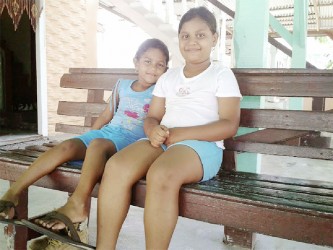
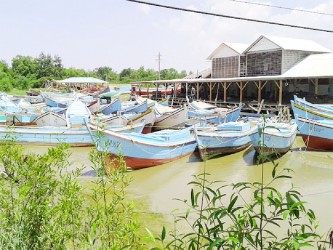
as the residents don’t “mind anybody business.” She qualified this by saying that when residents met on the road, however, they would “gaff.”
As far as recreational activities are concerned, she spoke about horse-racing, since there is a race-track on the southern side of the road and the Neville Budham Memorial Turf Club is also located in Number 66.
Sandra mentioned that plans are in place to extend the village on the northern side. According to her many people have already purchased land and are waiting on land surveyors to draw up the demarcations.
Further in lives Jailall Tahall, the owner of the only shop in the village. Mr Tahall has been living at the head of the street near the race-track for the past 60 years and said that over the years the community had changed. “Many of the folks that were around during my days growing up, migrated to foreign lands or passed away. This is a new generation growing and living here now,” he observed. Tahall said that he worked at GuySuCo Skeldon Sugar estate for many years but after falling sick he was unable to work and so started his small business. Apart from being a small entrepreneur, Tahall spends time with his family, especially his grandson who keeps him busy most of the time.
Asked about the people in the community he said the residents were very friendly and helpful. He, too, boasted of the community’s horse-racing track. The sport, he said, is a “big thing” in the community as many residents would look forward to races. Tahall said he never went even though he had been given complimentary passes on a few occasions. He takes a quick look at the horse-racing from his rear veranda but then has to return to attend to his customers in the shop.
Tahall also explained that Number 66 has a lot of land space, which gives the residents the opportunity to do as much as they want. The spaciousness also prevents neighbours from having issues with one another. “I wish if everybody could have land space like us,” he remarked.
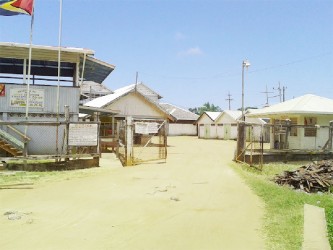
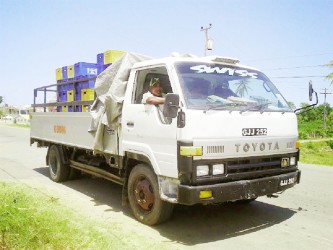
He told this newspaper that the community work force is made up of rice and cattle farmers, carpenters, cane harvesters, fishermen, and drivers for hire-cars, trucks, tractors, etc.
“This [village] is quiet; everybody minds their own business. We don’t have fighting between our neighbours… it is always unity in this community. If somebody has a function everybody turns up to help, everybody keeps the peace. That’s why I love this place, I born and grow here and still don’t want to go and live anywhere else,” said Kamwattie Toolsi.
Toolsi was feeding her granddaughter when Sunday Stabroek dropped in. She recalled that during her days growing up, the girls would learn how to cook and sew, and on some afternoons they would all sit and listen to stories. She still remembers those tales and would tell them to the youngsters whenever there is a wake in the community. She also recalled that during her days growing up when people finished their chores they would go to the creek to swim. Everybody knew how to swim in those days, she added. She also recounted that during the festive season of Holi, after they had burnt Holika, the boys would start playing Phagwah as they would throw people in the creek and throw water on others. Now, however, they no longer can enjoy the creek, because it has become contaminated with waste.
Asked what kind of recreational activity they take part in now, Toolsi responded that sometimes the family would go to the backdam and bush cook, or sometimes hang out at the Number 63 beach on weekends and holidays. She added too that they would also follow the horse-racing.
Asked how people travelled in the area, Toolsi replied they used public transportation such as cars and tapirs. She lamented that the tapir culture was dying out particularly as it was a brand associated with the upper Corentyne area.
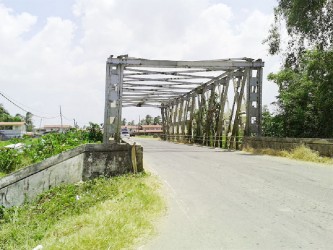
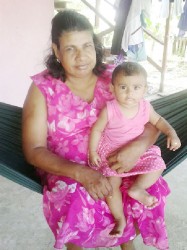
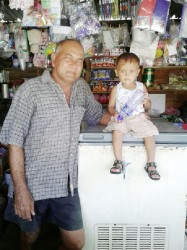
Toolsi also recalled that the community to her knowledge began with families such as the Khodais, Sampats, Jaisinghs, Kennetts, Garibi and the Mahadeos. She also noted that the Mahadeos’ brother is Yog Mahadeo Chief Executive Officer of Inspire INC, while Vishwa Mahadeo is a member of parliament and Chief Executive Officer of the Berbice Regional Health Authority.
At the end of Number 66 Village is the fishing complex which was donated by the Canadian International Development Agency in 1989. The building was commissioned on January 11 of the same year by then president Desmond Hoyte.
According to the newly elected chairman of the fishing co-op, Parmeshwar Jainarine, the complex originally started in Number 79 village. After the present complex came on stream the one at Number 79 closed down.
Jainarine said fishermen are allowed to dock their boats and load them at the wharf for a small fee of $1,200 per month. He said that when the fishermen sell their catch the co-op does not benefit from it. The co-op provides a kind of one-stop shop, with a supermarket, a club and a canteen.
Asked about the problems faced at the fisheries, Jainarine replied that there were too many. However, he noted that piracy is the biggest and most worrisome one. Another problem is with the ice machine which hinders the production of ice, and the fact that they need additional ramps.
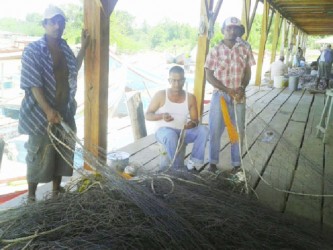
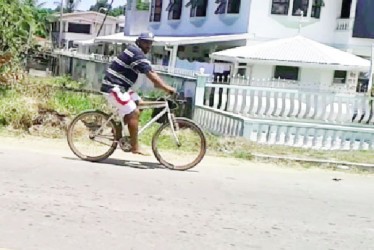
When asked about crime, residents described their village as crime free; nobody troubles their property, they said, if it is left unattended.
Residents access fresh produce from the Skeldon market and many other stores in Skeldon. Students from the area attend school in the neighbouring communities of Numbers 68 village, 63 and Skeldon. The community also boasts the only steel tunnel style bridge in the Ancient County.









